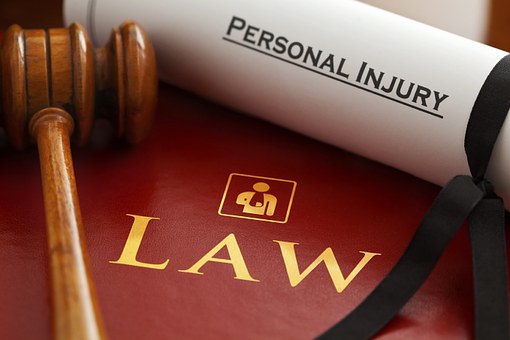There is a crucial element of trust in an employer-employee relationship. For example, you trust the employee to come to work and complete the tasks you have set for them to the required standard. Whilst they trust that you will treat them fairly and pay them correctly…

Continue reading Is workplace surveillance right for your business?
Tag: workplace
Why should employers be aware of ‘Divorce Day’ and the season of separation?
Many people will be returning to work this week, ready to swap stories with colleagues about comical family moments over the Christmas break. A common summary including the following: overindulgence, peculiar presents, a kitchen calamity and a joke taken the wrong way…

Continue reading Why should employers be aware of ‘Divorce Day’ and the season of separation?
Why Choose a Health Safety & Environment Consultant Over an Online System?
There are many online safety systems on the market, offering an alternative to using a traditional consultancy. I am often asked what are the benefits of using a dedicated health and safety consultancy, over an online system…

Continue reading Why Choose a Health Safety & Environment Consultant Over an Online System?
First aid in the workplace – what you need to know…
People can suffer injuries or be taken ill at any time – and this could be staff or your customers. It doesn’t matter if injury or illness is work or environment related, you should offer immediate attention – and call an ambulance if necessary. You should make arrangements to ensure this happens – it can save lives and prevent minor injuries becoming major ones…

Continue reading First aid in the workplace – what you need to know…
What employers need to know about enforcing a dress code at work…
Recent high profile legal cases about dress codes at work have left some employers unsure about what they can and can’t ask their employees to wear in the workplace. In this blog, we give you the information you need to help you navigate this potential landmine.
1. What are the benefits of a dress code?
There are many legitimate reasons why you might want to consider imposing a dress code on your employees, ranging from health and safety (e.g. requiring hair to be tied back or covered in a kitchen) to helping you to communicate your corporate image.

2. Am I allowed to impose a dress code?
You are allowed to enforce a dress code in the workplace to ensure that employees are dressed appropriately so long as it doesn’t unlawfully discriminate against anyone. This means that it must not unfairly affect an employee unless you can show that the requirement is a proportionate means of achieving a legitimate aim.
3. What do I need to consider when developing a dress code?
Though corporate image may be important to you when devising your dress code, the health, safety and comfort of your staff is paramount. You must also take into consideration any potential religious and ethnic sensitivities.

4. Can I have different dress code requirements for men and women?
You can have different requirements for men and women, providing that those differences are not to the detriment of one gender. It is not discriminatory, for example, to require men to wear a tie providing that women are required to meet a comparable standard of smartness.
5. Must I have different dress code requirements for different religions?
The requirements of your dress code must relate to the job and be reasonable in nature. If you ban an item of religious dress, you must be able to justify your reasoning by demonstrating that the restriction is connected to a real business or safety requirement.

6. How should I communicate my dress code policy?
Dress codes should be written down in a policy and communicated to all staff so that they understand what standards are expected of them. As with all employment policies, you should review your dress code regularly, including revisiting whether its objectives are still relevant. Include within your policy the circumstances in which adjustments can be made, for example, for disabled employees.
Generally, the more flexibility that you can allow into your dress code while still achieving your objectives, the less likely it is that any problems with it will arise.
7. What are the penalties for employers whose dress code falls foul of the law?
Employees who feel that the dress code unfairly discriminates against them may decide to bring a claim against you. Where that employee succeeds at a Tribunal, financial compensation may be awarded largely on the basis of injury to feelings; if the employee has been dismissed or resigned and succeeds in a claim for constructive unfair dismissal, any award could include an element for loss of earnings too.
For more information, see ACAS Guidance on Dress Codes or contact Simon Morgan at The HR Department on simon.morgan@hrdept.co.uk.
How Do We Manage Health and Safety Risks in the Workplace?
It’s a question often asked of health and safety consultants, and it begins with the risk assessment. Conducting a health and safety risk assessment is a requirement of the Health and Safety at Work Act 1974 and the Management of Health and Safety at Work Regulations 1999 as amended in 2003 and 2006. More than that, it is an opportunity to improve and strengthen your business.

Continue reading How Do We Manage Health and Safety Risks in the Workplace?
Asperger’s in the Workplace
What Is Asperger’s
Asperger’s is a form of Autism and is part of the autistic spectrum table. There are many different types of Asperger’s which affects people in different ways. There are several characteristics of sufferers with Asperger’s:

➢ Superior Memory
➢ Must follow daily routines
➢ Fascination with specific subjects
➢ Speech and language impaired
➢ Difficulty of understanding other feelings
➢ Marked impairment, Body posture, facial expressions, gestures
➢ Difficulty judging personal space, clumsiness
Auto Enrolment – An Overview
Many readers may be surprised to learn that auto enrolment has been in operation for large employers (250+) since 2012. The auto enrolment process will continue up to the final staging dates in 2017, but despite recent TV advertising campaigns from the Pensions Regulator featuring the larger than life character ‘Workie’, it seems some employers are still unsure or in some cases unaware of how this fundamental change may affect them and their employees.
